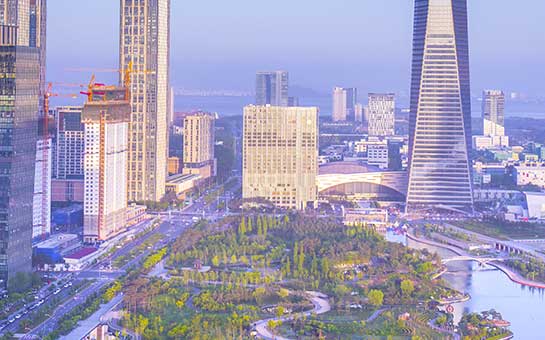South Korean regulations make it compulsory for expats and foreign nationals to register in the NHI (National Health Insurance) plan. If you’re moving to South Korea, we would recommend taking your coverage a step further by purchasing South Korea private health insurance. Why? Let’s find out.
South Korea is among the most technologically advanced countries in the world. The nation also has the lowest crime rates, even with high alcohol consumption rates. The public transport system covers the entire country, and the healthcare system is robust. While increasing pollution is a cause of concern, you can rest assured that you will get apt medical care if you need it.
It is mandatory for expats to register for South Korea public health insurance. Is healthcare free in South Korea? Absolutely not. For new registrations, you might have to shell out more than 100,000 won as a monthly premium. This premium may go up above 110,000 won if long-term care for the elderly is included.
South Korea’s current regulations were put in place to curtail the incidents of healthcare “dine and dash” by expats—that is, entering the country, getting medical treatment, and leaving again. The regulations aim to ease the burden on the healthcare systems and reduce reverse discrimination against Korean nationals.
As an expat, you will have to pay for NHI. You are also free to enroll in private expat health insurance plans for foreigners, as well.
So, what does NHI (National Health Insurance) include for expats? Let’s take a look.
The Healthcare System in South Korea
Before we understand the South Korean healthcare system, it is important to understand how the contributions need to be made. This is done through the social insurance tax that reflects in your annual salary. The coverage extends to your family members and other dependents.
Your employer will pay half of the required amount, and the rest is your responsibility. Even after enrolling, when you visit a doctor or a dentist, you will have to pay a small consultation fee.
A rather unique aspect of the South Korean healthcare program is that there is little difference in quality between public and private care. However, there are significant differences in price.
South Korean public health insurance covers 50% to 80% of total medical costs. This includes:
- Cost of medical checkups
- Accident coverage
- General procedures
- Prescription medicines
- On-the-job accident expenses
Is Private Expat Insurance Necessary in South Korea?
South Korea expat health insurance might not be necessary for all expats. But the practical aspects of the healthcare system in South Korea make it beneficial to have expat health insurance in South Korea.
Some of the reasons for that include:
-
The majority of healthcare facilities in South Korea are concentrated in the cities. This leaves the rural areas devoid of advanced technology in the health sector. While most of the population is in cities, your area of residence may be underserved.
If you are living in a location with minimal healthcare, you will have to move to a better-developed region for complete medical care. This will undoubtedly cost a substantial amount of money.
If you are in underserved areas, South Korea expatriate health insurance ensures enough coverage to move to the cities or towns for better care.
-
The wait times for treatment are exorbitantly high, even in emergencies. In non-emergency cases, you might have to wait 24 hours or even a couple of days for treatment. This can be difficult for people with special medical needs and respiratory diseases like asthma.
If you suffer from conditions requiring immediate care, we recommend South Korea expatriate health insurance so that you get quick and efficient care in times of need.
-
The private healthcare system is more effective in terms of shorter wait times and offering cultural ease to expats. Most public healthcare facilities will have one English-speaking doctor. However, asking the doctor too many questions and requesting second opinions are against cultural norms.
Does this bother you? Would you like to make sure that you get treatment from someone willing to explain things? Private clinics would be a better option, then. They have more English-speaking staff members to make the process more convenient for you. South Korean private health insurance is beneficial, given the high cost of private care.
-
The South Korean healthcare system can be said to angle more toward curative care than preventive care. You might get apt treatment for most major diseases, and the treatment would be highly effective—even by international standards. However, that does not save you from long-term side effects.
If you need constant support from the healthcare sector, expat health insurance in South Korea is important. It ensures you have healthcare available to you at all times.
Buying Expat Insurance in South Korea
Now, if you are looking for South Korea expat health insurance, you need to analyze the policy plans for the one that best fits your particular needs. Your pre-existing conditions and the need for a cross-cultural healthcare experience would dictate your choice of plan.
No matter what plan you choose, get expat health insurance in South Korea before you arrive. It goes beyond the usual benefits of the insurance coverage, extending across national boundaries. South Korea expat insurance ensures you get quick healthcare that doesn't drain your bank account.
